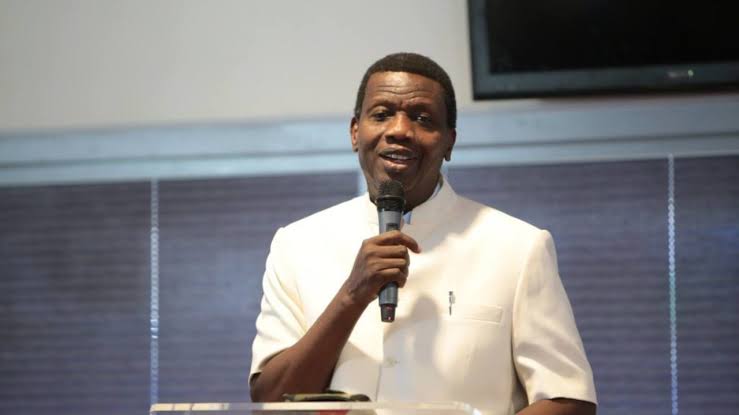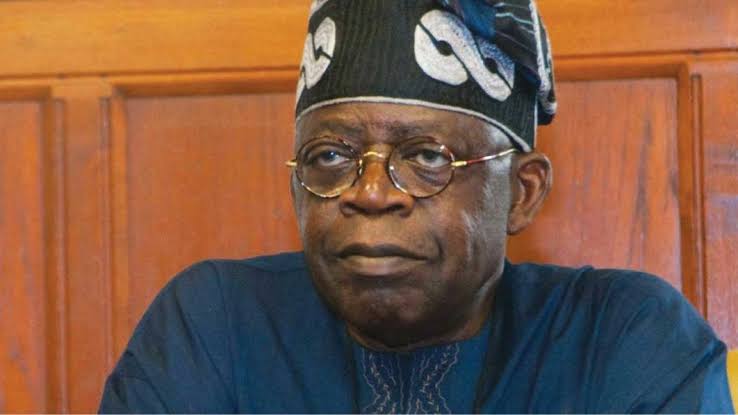Recently, about 2,500 Islamic clerics known as the Ulamas, who are believed to be deep spiritual Muslims, and for a long period do not come out of their domains as an act of spiritual worship, travelled to pray for Asiwaju Tinubu, a practising Muslim, with the belief that he would win the 2023 presidential election…
By John Augustina
The Redeemed Christian Church of God (RCCG) had recently released a memo containing the details of a newly-instated department on politics and governance in preparation for the 2023 general elections in Nigeria. This action, according to the memo, is designed wholly to mobilise the necessary support needed by members who may have interest in vying for specific political positions. In this regard, the church ordered its branches to appoint a provincial officer at all levels to effectively manage this newly-instated department. This development has left many people wondering what the reasons for this establishment could be.
Many articles and social media users are of the opinion that the newly-designed department was done to install the current Vice President of Nigeria, Yemi Osinbajo, as the next president of the country, as a response to a revelation that the General overseer, Pastor E.A Adeboye told the church about a member of the church becoming the president of Nigeria.
Not all of us please. I belong to RCCG but that doesn't change the fact that Osinbajo is a monumental failure as far as his hands-tied vice presidency is concerned. And there are not a few in the church who know this.
— JEHOVAH reigns (@TrueTyger) March 10, 2022
Share evidence of this ur dubious claim of "Pastor Enoch Adeboye’s oft-quoted prediction that one of them would become Nigeria’s president during his lifetime"
— GBOGBO WA NI ELLU P! (@BabatundeBeacon) March 11, 2022
This isn’t really surprising, frankly, because Pentecostal Christians see Osinbajo as their representative in gov't and think he is d fulfilment of Pastor Enoch Adeboye’s oft-quoted prediction that one of them would become Nigeria’s president during his lifetime.(Osinbajo’s rise
— Farooq Kperogi (@farooqkperogi) March 10, 2022
Rising in the defence of RCCG, the national director of politics and governance of the Pentecostal Fellowship of Nigeria (PFN), Pastor Femi Emmanuel, said that the action taken by RCCG wasn’t based on the intention to support Osinbajo as the next president but a response to the demand made by PFN on the different churches that belong to the body; RCCG only happened to take the lead in enacting the demand. He also urged the churches in Nigeria to follow the good path that RCCG has opened.

Whatever the reasons for this memo may be, it is undeniable that religion and politics is gradually finding a meeting point, a convergence that would alter past beliefs, yet maintain the core codes of Christianity.
For a long time, religion has played a heavy role in the politics of Nigeria. It is no rumour that many Muslims in Nigeria had voted for the current President, Muhammadu Buhari, because he was a Muslim, and a horde of RCCG members also joined in because his vice, Yemi Osinbajo, was a pastor in the church.
Many Christians have been held up in a mind cave that holds that politics is not for Christians. However, this has not stopped the few whose determination are geared toward achieving a political position from aspiring for such a position in democratic Nigeria. The likes of Goodluck Jonathan, Yemi Osinbajo and others have defied this mindset. It is however a minute fraction of the entire politically-conscious population that have successfully crawled out of this perception.
Over the years, many articles have been written and many teachings have been done by Christians to enjoin christian church goers to ward off any appearance of politics, as the faith of politicians is questionable. Many regard the entire process involved in politics as worldly affairs that must be avoided by real religious and dedicated worshipers. The passion paired with this mindset has restrained many Christians from aspiring for political positions.
Another factor is the divide between Christians and Muslims. This divide is well illustrated by the fact that religion, rather than nationality, is the way in which most Nigerians choose to identify themselves. Beneath these divergent intent is the distrust both group feels towards each other. Most Nigerian Christians hold little or no trust for people from other religions. Similarly, a larger percentage of Nigerian Muslims hold little or no trust for people of other religions. Interestingly, too, Christians as well as muslims divided along denominational lines engage in these internecine disputes and rivalry. This has led to the unending rivalry between both religions as Muslims do their best to frustrate the political efforts of non-Muslims with the supposition that only Muslims are pure and capable of leading the masses; hence, they throw their weight behind their supposed eligible individual. This is clearly shown in how most of the important positions in the country are held by Muslims.
Recently, about 2,500 Islamic clerics known as the Ulamas, who are believed to be deep spiritual Muslims, and for a long period do not come out of their domains as an act of spiritual worship, travelled to pray for Asiwaju Tinubu, a practising Muslim, with the belief that he would win the 2023 presidential election. After the prayers, they guaranteed Tinubu that becoming the next president of the country was a done deal. This, among many other practices, are what Muslims do to support other Muslims who are into politics.

Religion has featured prominently in ethnic conflicts in the Middle Belt, especially in Southern Kaduna where one group persecutes the other through repeated cycles of violence, and the government which should enforce peace and justice, is usually partial and biased, taking sides, most cynically, depending on the religious affiliation of the persons in power at a point in time.
Politics is generally a dirty sport, and some people hold the opinion that as politicians rise in their political career, they get involved in filthy and ungodly practices such as human ritual sacrifices in order to sustain their political ambitions. It is also believed in some quarters that someone has to belong in a cult to thrive in politics.
The untamed behaviours exhibited by political thugs is another factor. The election period is heavily accompanied with blood shed and kidnappings perpetuated by armed thugs who murder innocent people. The lies and deceitful promises politicians make in order to gain the favour of the populace during their campaigns is another reason many Christians abstain from politics and all its appearances.
Recently, there have been a massive reform in the doctrine and perception of many Christians. Many now believe that the gospel is holistic in nature, and therefore, it encompasses different systems including politics, and provides a comprehensive understanding of political involvement. Many Christians now preach that the foundation of the gospel is undoubtedly rooted in good works and, engaging in good works demands their participation in the political process. The capacity to effectively reach out to people and show them love is enhanced by the positions politics avail.
What this does is counter the existing mindset that politics is a dirty game and reinstates the mindset that Christians can still be in politics and be religious. With this development, more religious people will emerge from the background to indicate their interest for political positions. Also, many churches will follow the trail made by the RCCG by creating the elasticity needed to readjust to this new system. This is a pointer to the possibility and need for Christians to participate in election processes. They can contest, and if possible, win elections at all levels.
The need for this political and religious convergence has been a recurring theme in the political life of Nigeria for many years, especially with Christians who have interest in politics but are unsure of getting support from church people. This by itself is enough to show that people are, to a great extent, standing against the ways in which politics is currently conceived and practised. Many Christians believe that corruption and its inseparable accomplices such as nepotism and personality cults have all combined to eliminate ethical and democratic principles from the politics in Nigeria. They also know that these leaders are ridden with corruption and practise many forms of exclusion including tribalism, religious bias, and sexism. The mechanisms such as the use of ballot boxes, casting of votes, and campaigns that have traditionally been seen as the legitimate way of doing politics have lost credibility among a large number of the population. People now feel that being a part of these political processes will enable a change. It is now a case of faith without work being dead. To make matters worse, the country is reacting to the global inflation with an individualistic survival instinct that is becoming a process that is leading to an even greater loss of legitimacy seeing that the Nigerian president is currently out on vacation and citizens are left like sheep with no shepherd.
This move by the RCCG points to the fact that there are still Christians who do not wish to be included in the established, traditional order of things concerning religion and politics; Christians who are determined to change the established order by rising and taking on different political positions. For this desire to be achieved, this need for a political and religious convergence must be seen as a key element in the efforts to restructure the different practices and persons that make up the system. Perhaps, this is the shimmering light that Christians have been waiting on to shine on the political system of the country. Whatever it is interpreted to mean, it points a definite finger to hope and a better future that promises equality.
John Augustina is a 400 Level student of Mass Communication at the University of Benin.




